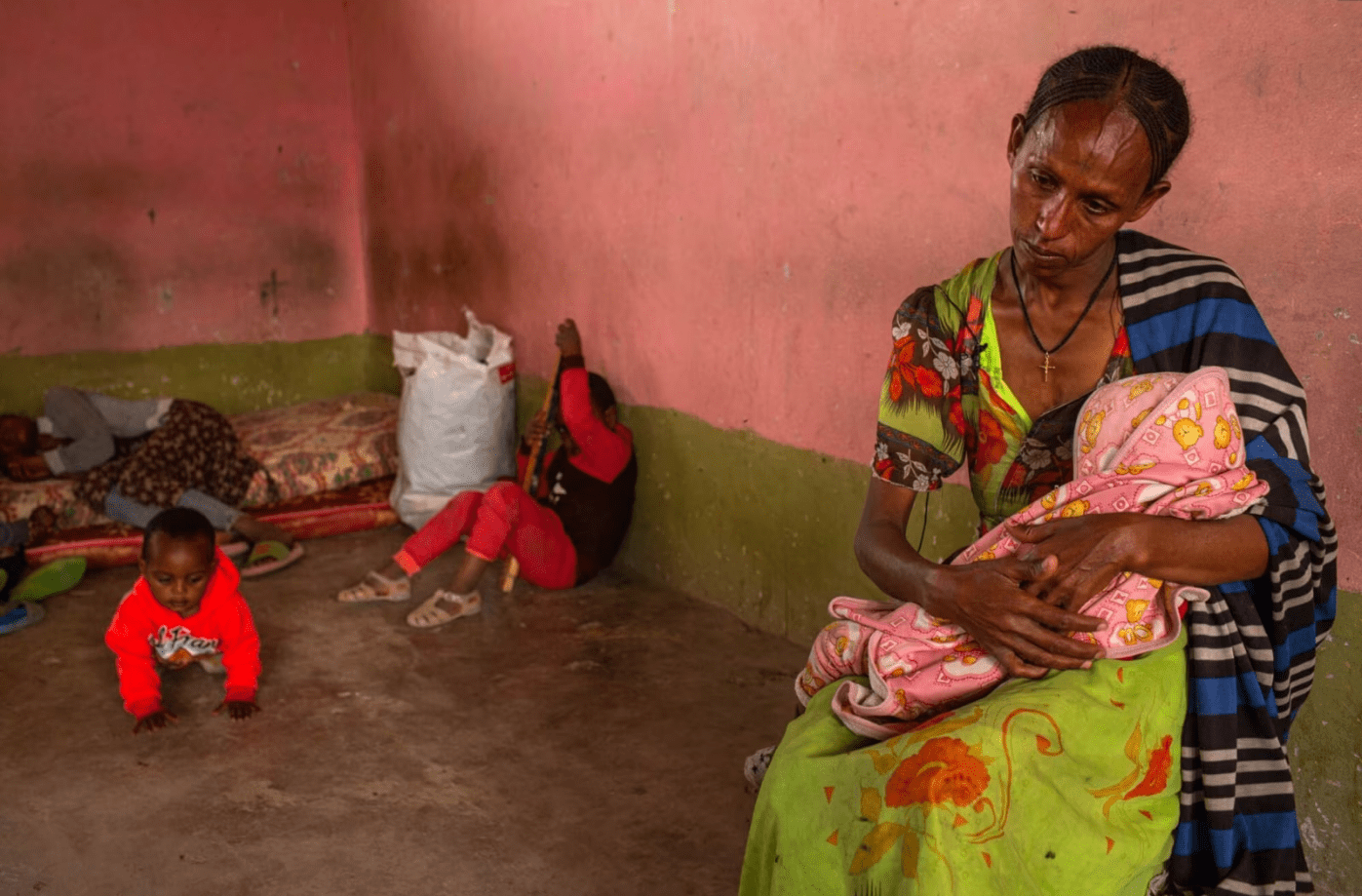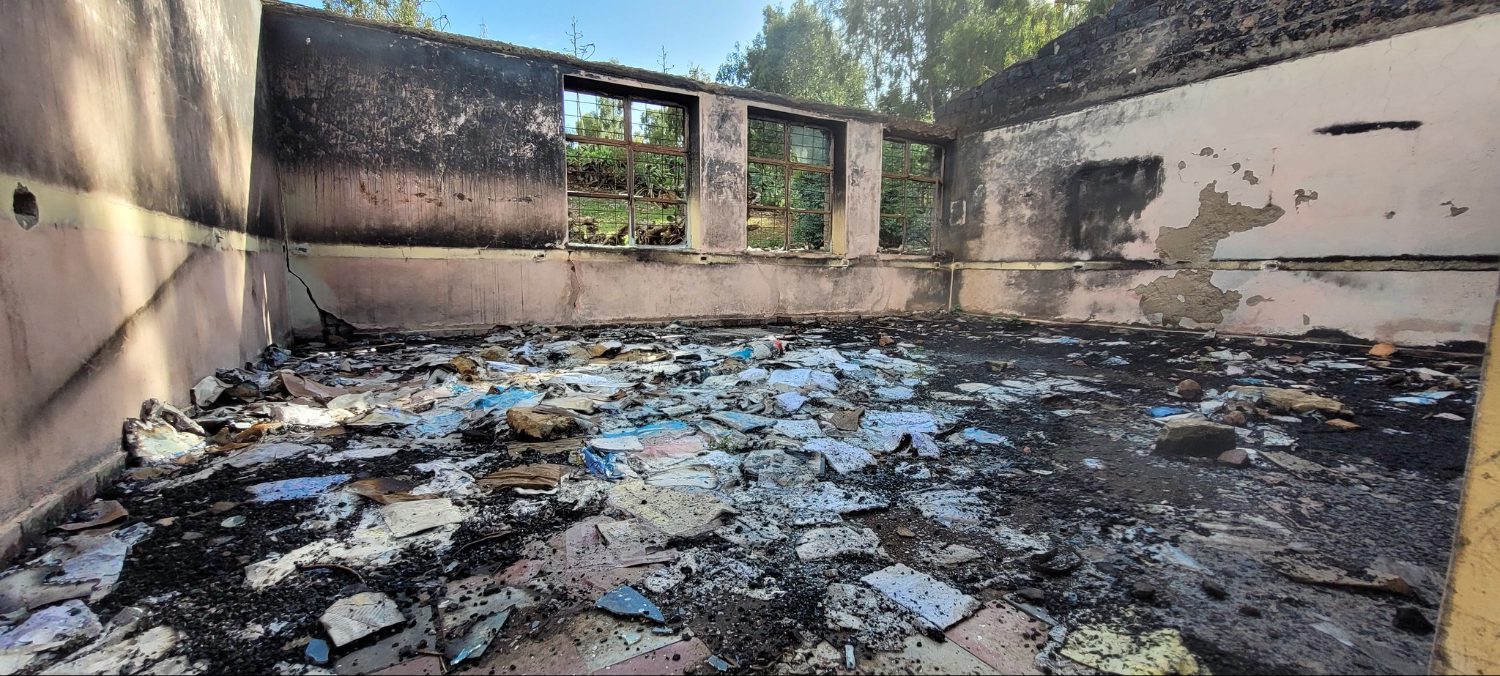This blog is part of our “Famine Voices” project, that intends to bring diverse perspectives on famine, with a particular emphasis on the voices of victims, survivors and those who are closest to them, to wider debates on the understanding of famine, including measurement, policy, theory and accountability.
When we first began drafting the memo on the hidden urban hunger in Tigray, we did not intend for it to become as long or feel as raw as it did. But the more we tried to explain, the more it became clear that silence and normalizing suffering had already done its damage. We noted how the starvation and humiliation endured by Tigrayans during the war and blockade between 2020 and 2022 have been erased from international memory, with far-reaching consequences. Even among the few humanitarian reports that acknowledge the crisis, whole swathes of the story remain invisible.
We argue that this invisibility constitutes a form of violence in itself. The famine in Tigray was not only about biological deprivation but also about humiliation. Writing this memo is therefore an act of resistance against the systematic dehumanization of Tigrayans and the ongoing erasure of memory. Famine destroys more than bodies; it dismantles continuity, identity, community, and the very sense of human worth. That is the story that needed to be told.
We write this for four reasons. First, the reliance of international organizations such as the UN, the World Food Programme, and the Famine Review Committee on conventional tools that privilege rural markers of deprivation led them to misunderstand the famine in Tigray. Crop failure and child malnutrition were visible, but the collapse of salaries, freezing of bank accounts, and shutdown of markets in towns went unmeasured. Urban starvation had no metrics, and so the suffering of professionals, teachers, pensioners, and civil servants was left unrecognized. This blind spot continues today in places such as Gaza, where systematic starvation of urban populations is ongoing with little to no acknowledgment.
Second, the erasure of evidence and silence compounds the suffering in Tigray. Survivors of atrocities testify that the greatest wound is not only what was done to them, but how the world looked away. Tigrayans have been violated twice: first through the war and blockade that destroyed their lives and livelihoods, and again through the international silence that denied their suffering. Our writing is an insistence that their experience be remembered, their voices heard, and their pain recognised, even if humanitarian frameworks failed to register it.
Third, starvation in Tigray is a tool of genocide. The Ethiopian government and its allies systematically looted and destroyed food and economic infrastructure, imposed a siege, blocked aid, froze bank accounts, and shut down markets with the extermination and the civilian population as the main goal. Officials spoke openly of wiping out Tigrayans, dehumanizing them as weeds and cancers to be erased. To ignore the famine is to ignore this intent—and to be complicit in the erasure.
Finally, writing about the famine is vital precisely because even the limited international attention towards Tigray has shifted elsewhere while conditions for survivors remain dire. Global attention cycles quickly, and Tigray has already been relegated to the margins of humanitarian concern. Yet the crisis is ongoing, and hunger has not ended in Tigray, nearly three years after the November 2022 ceasefire. The conditions that produced famine remain in place, with little done to reverse the genocidal course. As many as a million people are still displaced, many unable to return to their homes in the fertile lands of western and southern Tigray and many areas along the border with Eritrea. Factories lie in ruins, farms remain abandoned, and salaries continue to go unpaid. New restrictions on fuel, trade, and humanitarian access continue to be imposed showing that tactics of siege persist long after the war was declared over. Starvation remains a weapon, now wielded more discreetly.
Silence now risks normalizing the use of hunger as a political tool—not only in Ethiopia but in conflicts settings across the world. By naming and recording what happened in Tigray, we contribute to a body of memory that resists denial and insists on accountability.
Read the full paper, Famine in Tigray: Hunger and Humiliation
This article was made possible in part by a grant from Carnegie Corporation of New York. The statements made and views expressed are solely the responsibility of the author.



